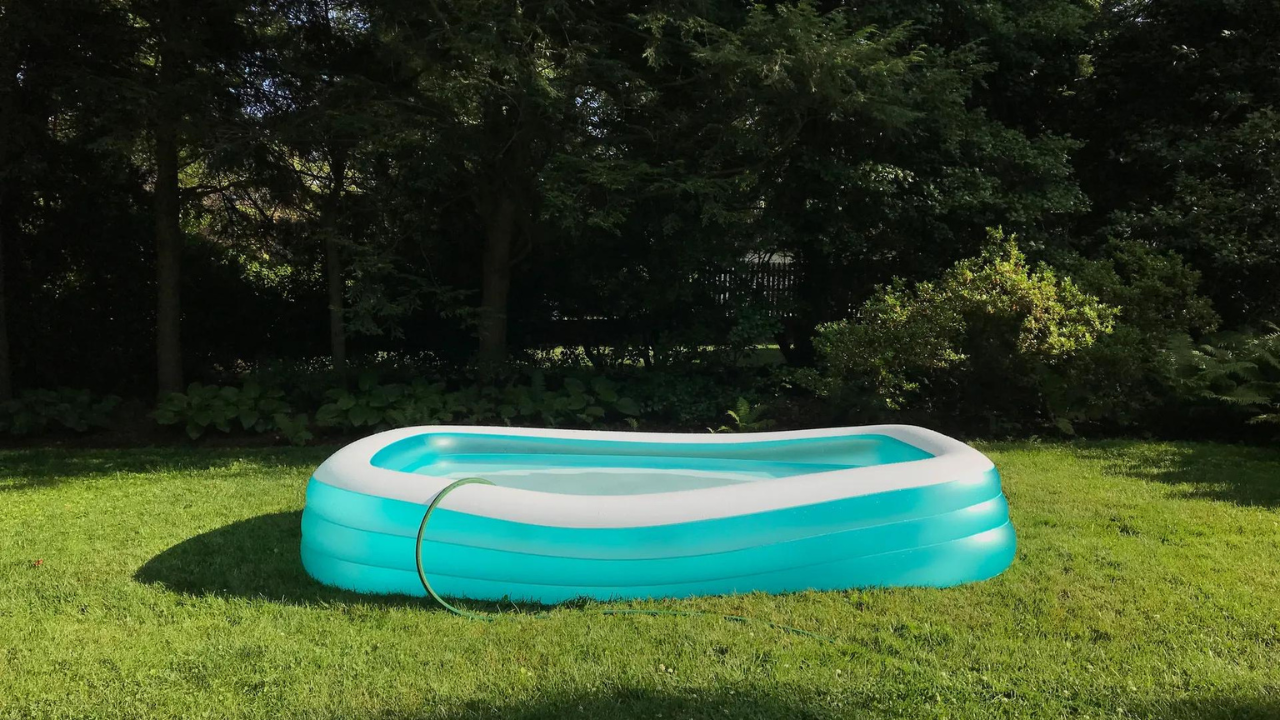
With temperatures set to reach 30°C in the UK this week, many families will be turning to inflatable garden pools as a refreshing and affordable way to beat the heat. They are particularly good for those with limited outdoor space, especially as they come in all shapes and sizes.
However, as useful as they are, there are several potential risks and pitfalls to be aware of. We spoke to Georgina Read, director of Paving Superstore, who shared three things to consider before diving in.
From algae buildup to placing the pool in the wrong place, these are the three mistakes everyone makes with inflatable pools.
1. Let algae build up
If you didn’t already know, inflatable pools are prone to algae growth without a proper filtration system. One way to combat this is to drain and refill the pool daily or whenever you use it.
If you are concerned about the environmental effect and potential costs associated with frequent draining and filling, try changing some of the water regularly. This can help remove some of the algae and contaminants while conserving water.
You can also place the pool in a partially shaded area or place a pool cover when not in use. This will help regulate water temperature and minimize algae growth, especially since algae thrive in warm, sunny conditions.
2. Overlook waterlogging and grass damage
If your yard has poor drainage, continued drainage can cause waterlogging and possible damage to your lawn. Waterlogged soil becomes compacted, making it difficult for roots to penetrate and access nutrients. This can stunt the growth of grass and other vegetation, or cause soil erosion and expose plant roots.
3. Install it in the patio
While inflatable pools are typically designed for grassy areas, they can also be installed on hard surfaces such as patios, pavers, or concrete. However, this should be avoided if possible.
The weight of the water in the pool can put pressure on the grout or cement used to hold the pavers or concrete slabs in place, which could cause cracks or dislodge the materials over time.
Chemicals used to treat pool water, such as chlorine or algaecides, can also stain or discolor paved surfaces if not properly contained.
Do you prefer to have one of the best jacuzzis? Check out our guide on how to turn your hot tub into a “cooling tub” for summer.



